A HISTORY
OF MUSICAL STYLE
A HISTORY
OF MUSICAL STYLE
by Richard L. Crocker
University of California, Berkeley
Dover Publications, Inc., New York
Copyright 1966, 1986 by Richard L. Crocker.
All rights reserved.
This Dover edition, first published in 1986, is an unabridged and slightly corrected republication of the work first published by McGraw-Hill Book Company, New York, in 1966.
Library of Congress Cataloging in Publication Data
Crocker, Richard L.
A history of musical style.
Reprint. Originally published: New York : McGraw-Hill, 1966.
Includes index.
Bibliography: p. 531-554.
1. Style, Musical. 2. MusicPerformanceHistory. I. Title. ML430.5.C76 1986 781.09 85-20718
eISBN-13: 978-0-486-17324-5
Manufactured in the United States by Courier Corporation
25029611 2014
www.doverpublications.com
IN MEMORIAM
LEO SCHRADE
PREFACE
 THIS BOOK TRACES THE DEVELOPMENT OF WESTERN MUSICAL style from the time of its earliest written records down to the present. Designed as a text for college music majors, it tries to tell the story of style as simply, as connectedly as possible. The book stresses the continuity of basic musical principles over long periods of history, while exploring in greater detail moments of high stylistic achievement.
THIS BOOK TRACES THE DEVELOPMENT OF WESTERN MUSICAL style from the time of its earliest written records down to the present. Designed as a text for college music majors, it tries to tell the story of style as simply, as connectedly as possible. The book stresses the continuity of basic musical principles over long periods of history, while exploring in greater detail moments of high stylistic achievement.
Our basic ideas of what happened in music history clearly need overhauling to make them accord with the facts brought out by modern research. Traditional explanations often no longer explain the growing body of music now easily accessible in anthologies; traditional interpretations often are not reflected in the increasingand increasingly goodperformances of music from other times. In response to this need for a fresh look at music history, every effort has been made here to incorporate up-to-date interpretations where they seemed warranted, or to advance new ones where necessary.
The present text offers the college music major a continuous account of musics changing style. While all important composers are mentioned, stress is laid on those composers, and those works, that mark out the main lines of music. Seeking the reasons for stylistic change within the history of style itself (rather than in the history of men or of ideas), the account tries to show how music, growing out of its own past, has shaped its own development.
The book is so constructed that its outline should be clear even if some phases may seem rather dense. Discussion of individual topics is initiated at a relatively low factual and conceptual level, then pursued through more sophisticated levels. By passing over some of the denser passages, any music major should be able to follow the main line of argument, while the better student should find enough to keep him occupied.
This book can be used as a text for several kinds of course work. The basic account presented here can be placed in dialog with material from social or intellectual history, from literature and the other arts, according to the interests of the individual instructor and his students. The analytical approaches suggested here for the various historical phases can be used as guidelines in courses oriented more toward analysis than historical survey. Selected parts of the book (as suggested on page 554) could be used as readings in an introductory course. The book has proved useful to graduate students for review survey. Lists of Selected Study Materials for each chapter are given at the back of the book to guide the student to the all-important study of significant musical compositions.
Richard L. Crocker
ACKNOWLEDGMENTS
Colleagues of all kindsfaculty, staff, and studentsof the Department of Music, University of California (Berkeley), and elsewhere have contributed ideas, materials, criticism, and encouragement. Many pairs of eyes sharper than mine have found countless errors of fact and style; many skillful hands have helped with the drudgery. The long-suffering staff of the Music Library has provided assistance at every turn.
M. Thomas, Director of the Department of Manuscripts, of the Bibliothque nationale (Paris) graciously permitted the inclusion of materials from that library, as did also Dr. Mason, Librarian of Christ Church College, Oxford.
Copyright releases were kindly provided by Mrs. Gertrud Schoenberg, Dr. G. Francesco Malipiero, the Ministre de leducation nationale (Paris), Director Mieczyslaw Tomaszewski (for the Fryderyk Chopin Institute, Warsaw), the American Musicological Society, the Mediaeval Academy of America, the Royal Musical Association, the Trustees of Smith College, and the following publishers: Brenreiter, Boosey & Hawkes, J. & W. Chester Ltd., Wilhelm Hansen, Jean Jobert, Mseler, Leo S. Olschki, Oxford University Press, Suvini Zerboni, Universal Edition A. G. (Vienna) and Universal Edition Ltd. (London), and Yale University Press.
Special appreciation is due to Desclee and Company, to Editions de lOiseau-lyre, and to Dr. Armen Carapetyan of the American Institute of Musicology for copyright releases of extensive material.
Since this book does not include full scholarly acknowledgments, perhaps a token expression of my indebtedness can find a place herefirst of all to my teacher, in whose memory this book is inscribed; then to my many colleagues, both here and abroad, whose publications have made this one possible.
R. L. C.
CONTENTS
A HISTORY
OF MUSICAL STYLE
PART
CHANT 700-1150
B EFORE THE BEGINNING: GREGORIAN CHANT
 THE HISTORY OF WESTERN MUSIC PROPERLY BEGINS NOT WITH the Greeks or Romans but with the Franks. These rough, vigorous tribes of redheaded warriors (as they are described) came down across the Rhine into what is now northern France and the Benelux region during the 200s and 300s. The Franks moved into a cultural space called Gallo-Roman, civilized for centuries under the Roman Empire, but now decaying within as fast as it was being infiltrated from without. At first it seemed as though the Frankish ascendancy was just another of the turbulent shifts in power as one tribe after another stormed across the remains of the Roman Empire. But the Franks stayed. They solidified their own position to the point where they themselves could afford to become civilized. Absorbing whatever elements of culture they encountered, they initiated a new phase of cultural synthesis. What made the Franks different from the other barbarians was not their great military aptitude but rather their even greater organizational ability. Rough and uncultured they had been, but they set up a culture that has lasted more than a thousand years.
THE HISTORY OF WESTERN MUSIC PROPERLY BEGINS NOT WITH the Greeks or Romans but with the Franks. These rough, vigorous tribes of redheaded warriors (as they are described) came down across the Rhine into what is now northern France and the Benelux region during the 200s and 300s. The Franks moved into a cultural space called Gallo-Roman, civilized for centuries under the Roman Empire, but now decaying within as fast as it was being infiltrated from without. At first it seemed as though the Frankish ascendancy was just another of the turbulent shifts in power as one tribe after another stormed across the remains of the Roman Empire. But the Franks stayed. They solidified their own position to the point where they themselves could afford to become civilized. Absorbing whatever elements of culture they encountered, they initiated a new phase of cultural synthesis. What made the Franks different from the other barbarians was not their great military aptitude but rather their even greater organizational ability. Rough and uncultured they had been, but they set up a culture that has lasted more than a thousand years.
THE FRANKS AND GREGORIAN CHANT
The education of the Franks began under the Carolingians, the leading Frankish dynasty. Under Pippin III, crowned king in 751, and his son Charles the Great, or Charlemagne (ca 742814), the Carolingians not only extended their kingship into an empire, but set in motion the process of acculturation through which Frankish energies and talents eventually found their own modes of expression. In their search for cultural values, the Carolingians turned to Rome and the Christian Church. Pagan Rome was a symbol of past greatness, of accumulated learning; as a symbol it was valued highly by the politically astute Carolingians. The Church, on the other hand, was one of the most important social realities on the European scene: it stood for order, and it stood for it in a way that obviously appealed to growing numbers of Westerners. The Carolingian political program, especially in education, came to depend largely on the institutions of the Church.
Next page
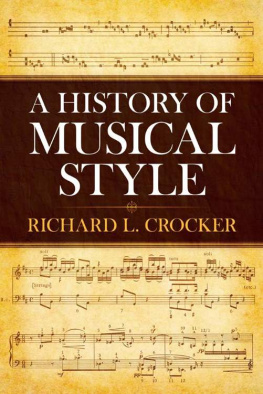
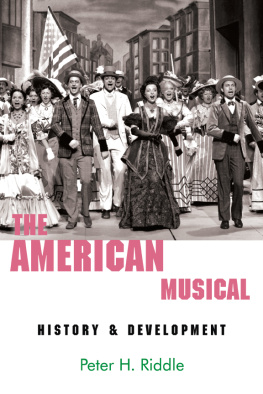

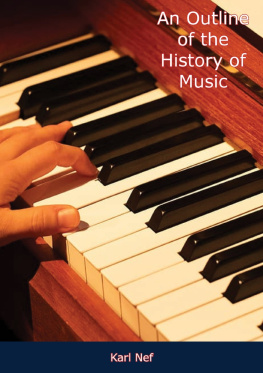
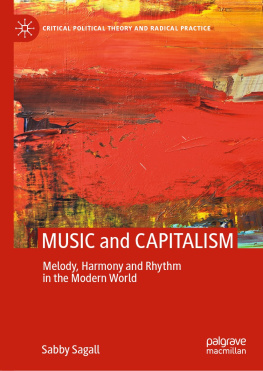
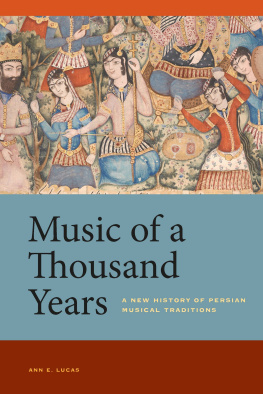
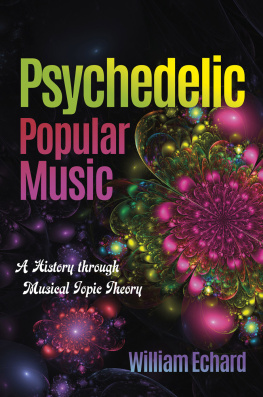
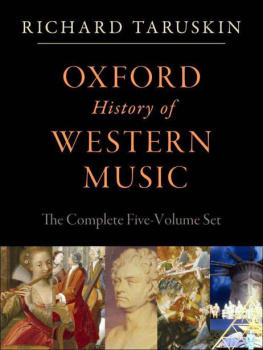
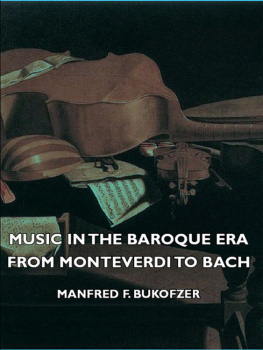
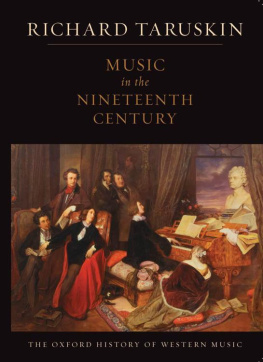
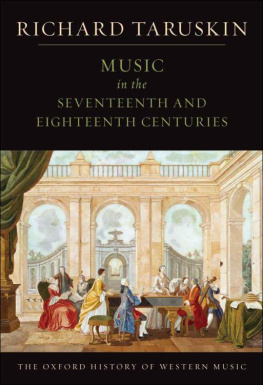
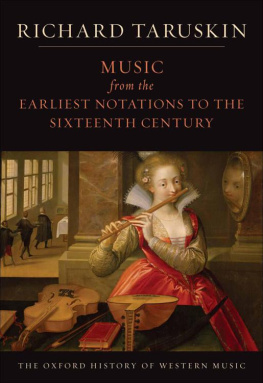
 THIS BOOK TRACES THE DEVELOPMENT OF WESTERN MUSICAL style from the time of its earliest written records down to the present. Designed as a text for college music majors, it tries to tell the story of style as simply, as connectedly as possible. The book stresses the continuity of basic musical principles over long periods of history, while exploring in greater detail moments of high stylistic achievement.
THIS BOOK TRACES THE DEVELOPMENT OF WESTERN MUSICAL style from the time of its earliest written records down to the present. Designed as a text for college music majors, it tries to tell the story of style as simply, as connectedly as possible. The book stresses the continuity of basic musical principles over long periods of history, while exploring in greater detail moments of high stylistic achievement. THE HISTORY OF WESTERN MUSIC PROPERLY BEGINS NOT WITH the Greeks or Romans but with the Franks. These rough, vigorous tribes of redheaded warriors (as they are described) came down across the Rhine into what is now northern France and the Benelux region during the 200s and 300s. The Franks moved into a cultural space called Gallo-Roman, civilized for centuries under the Roman Empire, but now decaying within as fast as it was being infiltrated from without. At first it seemed as though the Frankish ascendancy was just another of the turbulent shifts in power as one tribe after another stormed across the remains of the Roman Empire. But the Franks stayed. They solidified their own position to the point where they themselves could afford to become civilized. Absorbing whatever elements of culture they encountered, they initiated a new phase of cultural synthesis. What made the Franks different from the other barbarians was not their great military aptitude but rather their even greater organizational ability. Rough and uncultured they had been, but they set up a culture that has lasted more than a thousand years.
THE HISTORY OF WESTERN MUSIC PROPERLY BEGINS NOT WITH the Greeks or Romans but with the Franks. These rough, vigorous tribes of redheaded warriors (as they are described) came down across the Rhine into what is now northern France and the Benelux region during the 200s and 300s. The Franks moved into a cultural space called Gallo-Roman, civilized for centuries under the Roman Empire, but now decaying within as fast as it was being infiltrated from without. At first it seemed as though the Frankish ascendancy was just another of the turbulent shifts in power as one tribe after another stormed across the remains of the Roman Empire. But the Franks stayed. They solidified their own position to the point where they themselves could afford to become civilized. Absorbing whatever elements of culture they encountered, they initiated a new phase of cultural synthesis. What made the Franks different from the other barbarians was not their great military aptitude but rather their even greater organizational ability. Rough and uncultured they had been, but they set up a culture that has lasted more than a thousand years.